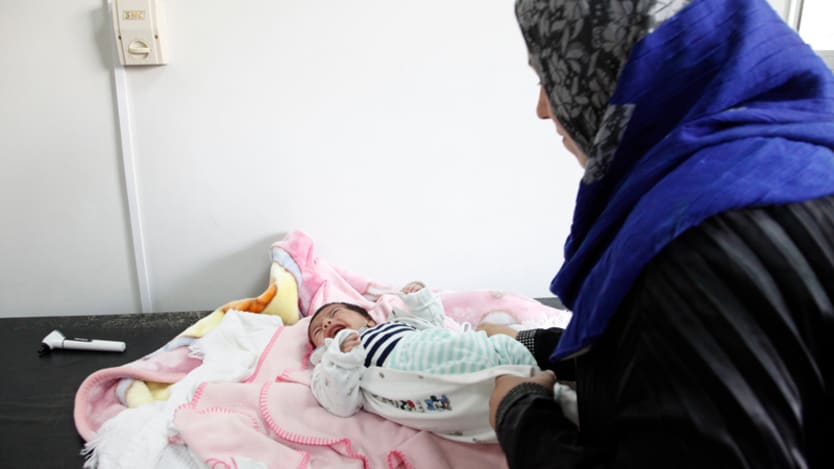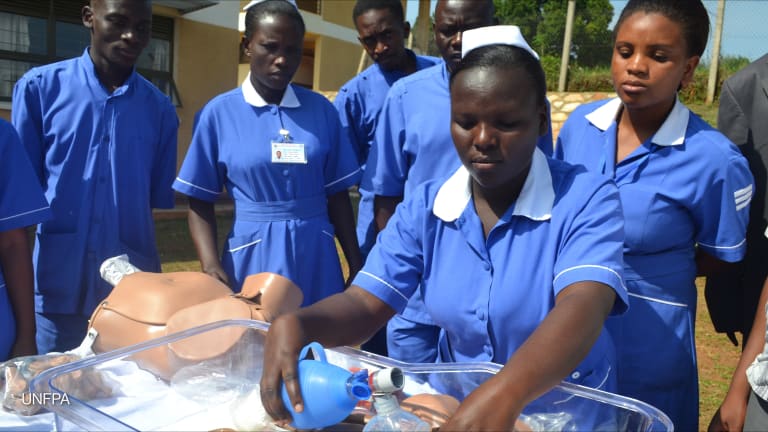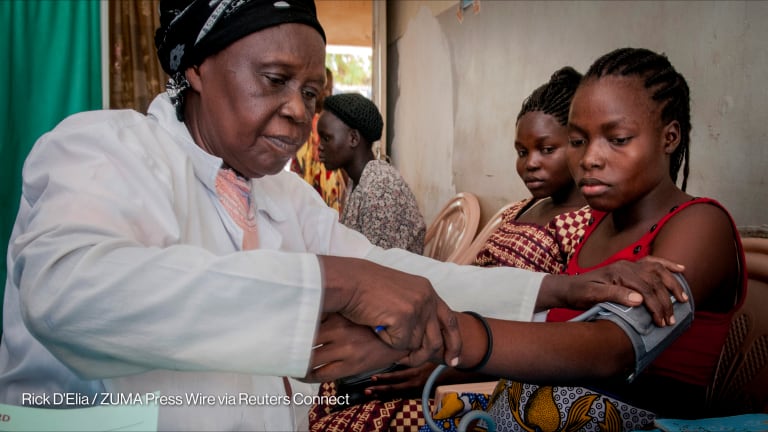
The humanitarian crisis in South Sudan is contributing to severe health service delivery challenges: It impedes access to already highly vulnerable populations, slows delivery of medical supplies and drugs, and exacerbates shortages of health workers. Those fleeing the violence are also affected. For example, of the more than 400,000 South Sudanese refugees in northern Uganda, more than 60 percent are women and children under 5.
While the conflicts in South Sudan, Syria, and elsewhere are well-known, they are not unique. According to the U.N. refugee agency there are more than 65 million forcibly displaced people globally. By population this would be the 21st largest country in the world, according to a new report from Save the Children.
To reach the ambitious Sustainable Development Goal for health, including reproductive, maternal, newborn, child, and adolescent health, we must make humanitarian settings a high priority, because populations in these contexts shoulder a high burden of need and vulnerability.
In a humanitarian crisis, pregnant women and women who have recently delivered must overcome immense obstacles to provide care and safety for their children. At the same time, women’s vulnerability to malnutrition, sexual violence, and unplanned pregnancy increases; and so do the risks related to unassisted childbirth.
Newborns — babies in the first 28 days of life — are especially vulnerable. Nearly half of newborn deaths occur in the first 24 hours after birth. Without appropriate support and supplies, and counseling to facilitate breast-feeding, a newborn’s condition can deteriorate within minutes or hours.
The U.N. Commission on Lifesaving Commodities has identified four low-cost commodities for newborn care that, if made available at scale, would have the greatest impact in reducing preventable deaths. These include: injectable antibiotics for severe infection, antenatal corticosteroids to help preterm lung development, chlorhexidine for umbilical cord hygiene, and a neonatal-sized bag and mask for resuscitation.
Health services implemented in humanitarian settings usually include prepackaged kits for reproductive, maternal, and child health. However, we need to redouble efforts to ensure that essential supplies for newborn care are included in these kits — with appropriate doses of certain medicines, supplies, and newborn-sized devices.
To help address this critical gap, Save the Children, as a member of an interagency group, collaborated to develop the “Newborn Health in Humanitarian Settings: Field Guide.” The guide prioritizes the most critical health services and supplies to prevent and manage the main causes of newborn death.
In South Sudan and Somalia, a training curriculum was developed and costed, complemented by three kits of newborn-appropriate medicines and equipment, each designed for specific settings: community care, primary-level clinics, and hospitals. UNHCR has developed complementary guidelines specific to refugees, and these are being tested in camps in South Sudan, Kenya and Jordan. Learning from both studies will inform revisions of the “Inter-agency Field Manual on Reproductive Health in Humanitarian Settings.” This work is of particular relevance to USAID: Of 25 priority countries, 18 are on the list of fragile states compiled by the Organization for Economic Cooperation and Development.
To effectively implement the 2030 Agenda and realize the SDGs, we must continue to support efforts such as these to reach the most vulnerable populations in these especially challenging environments. Organizations working in complex humanitarian situations should review their ongoing and planned activities to ensure that every program and package includes essential newborn care messages and best-practices (such as support for early and exclusive breast-feeding), that trainings cover maternal newborn health issues, and that supply kits include newborn-specific equipment and medicines appropriate to the setting.
For more Devex coverage on global health, visit Focus On: Global Health
Read more stories on maternal and newborn health:
► Tackling the age-old problem of maternal mortality through modern technology
► Saving mothers' lives begins at the grass-roots level
► Breast-feeding should be a global priority
► Breast milk for newborns: A key to sustainable development
► Maternal health issues 'aren't finished yet' — and neither is Jill Sheffield









